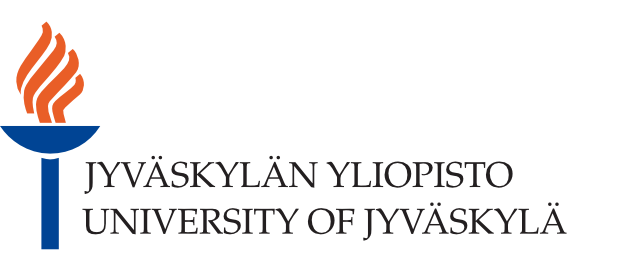 |
Department of Mathematics and Statistics Faculty of Mathematics and Science |
|
Home
Complex analysis 1 (MATS121), period 3, 2024(Suomenkieliset tiedot alla.) This course gives an introduction to complex numbers and functions of a complex variable. Complex numbers arose in the 16th century as a way of finding "imaginary" solutions to equations. In the 19th century complex analysis became an important part of mathematics. Nowadays complex numbers and functions are regarded as very "real", and they appear naturally in many parts of mathematics, physics and engineering. Topics include basic properties of complex numbers, analytic functions, complex derivatives, and complex integrals. We will also discuss (local) Cauchy's theorem and Cauchy integral formula, the maximum modulus principle, and the fundamental theorem of algebra. In period 4, it is possible to continue with the course Complex analysis 2. InstructorsThe lectures are given by Mikko Salo (office MaD359), and exercise sessions by David Johansson (office MaD236). You are very welcome to contact the instructors at their offices or by email. ScheduleThe lectures are Thursdays and Fridays at 10.15-12.00 in room MaD302 (11 Jan-1 March). Exercise sessions are Fridays at 8.15-10.00 in MaD380 (19 Jan-8 March). If you cannot make it to the exercise session, you can return your written answers to David Johansson (by email, or to mailbox) BEFORE the session. We have covered the following topics in the lecture notes:
MaterialLecture notes (22.2., in English), Luentomuistiinpanot (22.2., in Finnish) Handwritten notes: Lecture on 29.2., Lecture on 1.3.
Exercises 1 (19.1., in English and Finnish), solutions Supplementary exercises (will be discussed in voluntary exercise session on 8.3.) Earlier lecture notes may be found here (by Tero Kilpeläinen, in Finnish) and here (by Tuomas Orponen, in English). As additional reading, one could use the following textbooks:
PrerequisitesVector analysis 1, Introduction to mathematical analysis 3 and 4. CompletionThe course can be taken for credit (5 cr) by attending the lectures and exercises, completing at least 30 % of the exercises, and taking the course exam on 13 March or on 12 April. It is possible to answer in Finnish or English. The course exam will have a maximum of 30 points, and 15 points are required to pass. It is possible to get bonus points to the course exam by completing exercises as follows:
Kompleksianalyysi 1 (MATS121), periodi 3, 2024Tämä kurssi tarjoaa johdannon kompleksilukuihin ja kompleksimuuttujan funktioihin. Kompleksiluvut esiteltiin 1500-luvulla "kuvitteellisten" ratkaisujen löytämiseksi yhtälöihin. 1800-luvulla kompleksianalyysistä tuli tärkeä osa matematiikkaa. Nykyään kompleksilukuja ja -funktioita pidetään hyvin "todellisina" ja ne esiintyvät yleisesti monilla matematiikan, fysiikan ja tekniikan aloilla. Kurssin aiheita ovat kompleksilukujen perusominaisuudet, analyyttiset funktiot, kompleksiderivaatat ja kompleksiset integraalit. Kurssilla käsitellään myös (lokaalia) Cauchyn lausetta ja Cauchyn integraalikaavaa, maksimimoduuliperiaatetta ja algebran peruslausetta. Periodilla 4 on mahdollista jatkaa kurssille Kompleksianalyysi 2. OpettajatLuennoija on Mikko Salo (huone MaD359) ja harjoitukset pitää David Johansson (huone MaD236). Voit ottaa yhteyttä opettajiin sähköpostitse. AikatauluLuennot ovat to ja pe klo 10.15-12.00 huoneessa MaD302 (11.1.-1.3.). Demot ovat pe klo 8.15-10.00 huoneessa MaD380. Jos et pääse demoihin, tehtävät voi palauttaa kirjallisesti David Johanssonille (sähköpostilla tai postilokeroon) ENNEN demotapahtumaa. Kurssin tarkempi aikataulu tulee ylös englanninkieliselle sivulle. MateriaaliLuentomuistiinpanot ja harjoitukset (myös suomenkieliset) tulevat ylös englanninkieliselle sivulle. Aikaisempia luentomuistiinpanoja voi löytää täältä (Tero Kilpeläinen, suomeksi) ja täältä (Tuomas Orponen, englanniksi). Lisämateriaalina voi lukea teoksia
EsitiedotVektorianalyysi 1, Johdatus matemaattiseen analyysiin 3 ja 4. SuoritusKurssin voi suorittaa (5 op) osallistumalla luennoille ja harjoituksiin, suorittamalla vähintään 30 % harjoituksista ja osallistumalla kurssitenttiin 13.3. tai 12.4. Vastaukset voi antaa suomeksi tai englanniksi. Kurssitentin maksimipistemäärä on 30 pistettä, ja vähintään 15 pistettä vaaditaan läpäisyyn. Kurssitenttiin voi saada bonuspisteitä suorittamalla harjoituksia seuraavasti:
|